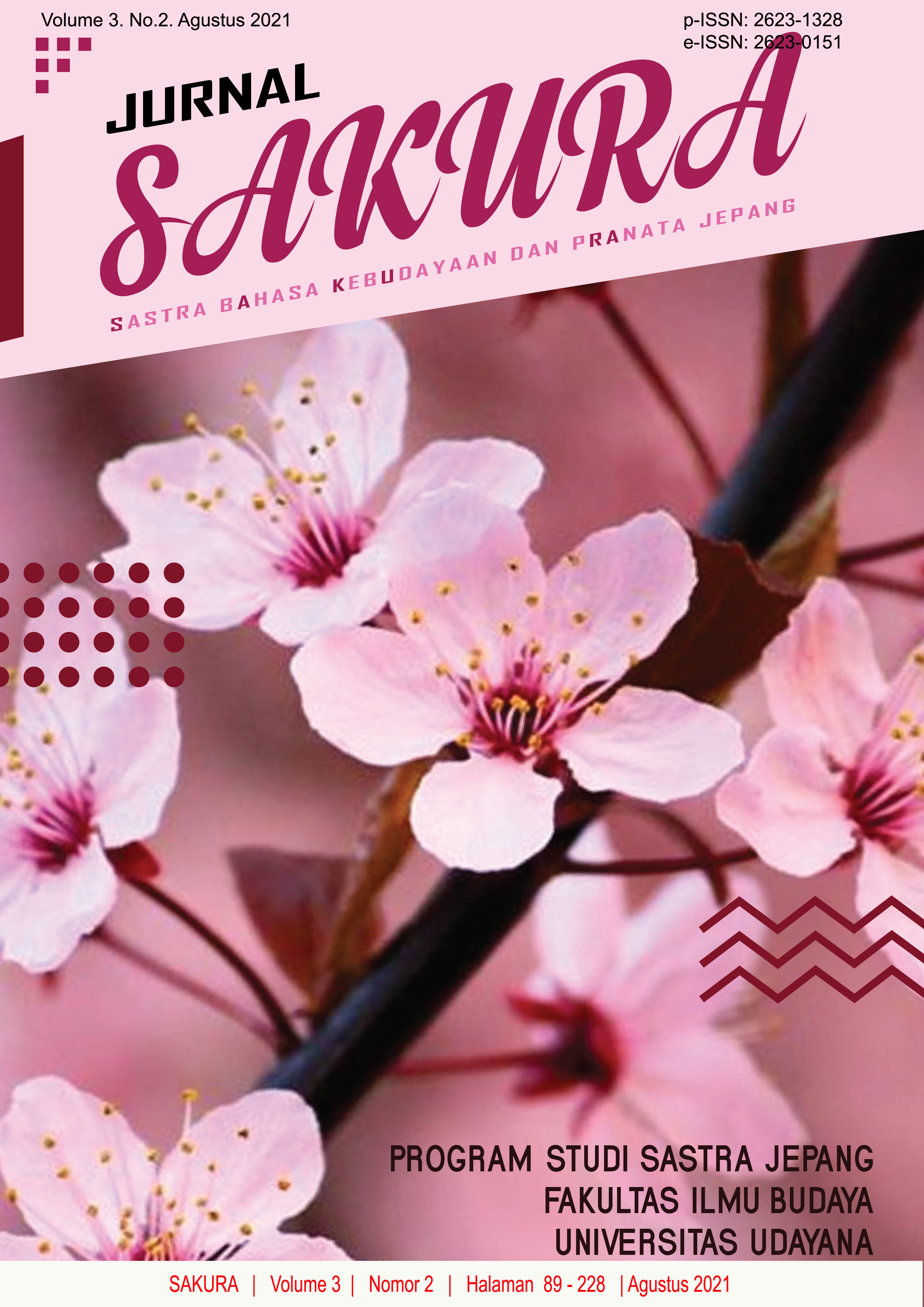Invensi dalam Genre Detektif
Abstract
The purpose of this research to describe the detective formulas in Japanese anime produced in the period 2014-2016, including Meitantei Konan I Jigen no, Ryuugajou Nanana No Maizoukin, Sniper Psycho-Pass : The Movie ( Gekijou-ban Psycho-Pass ), Ghost In The Shell, Meitantei Konan Junkoku no Naitomea, and Bungou Stray Dogs Season 1. The method used was descriptive qualitative with literary formula approach based on Cawelti. The data analysis technique uses were observing recording and classifying data. The results of this study show that there were 132 data with detective action pattern conventions consisting of six phases and four roles. That are 1) introduction of detectives, 2) crime and guidance, 3) investigation, 4) announcement of solution, 5) solution explanation, 6) end of story. In addition, these four roles are those who are exposed to the threat of 1) victims, 2) criminals, 3) detectives, and 4) crimes, but cannot resolve them. Then, it was found that the ending of the story was an archetypal invention in the anime Ryuugajou Nanana No Maizoukin, while the other five anime had archetypal conventions according to Cawelti's theory. In addition, in this study, it was found that there is a formula invention that occurs in every detective anime. The form of invention in detective anime is to add a supernatural formula to the storyline. Based on the results of data analysis, the conclusion is that the six animes contain the rules and inventions of the formula detective genre. Formula conventions and inventions occur as the audience becomes more interested in the genre. The more popular a particular genre, the more conventions and inventions as a development of formulas and archetypes.
Downloads
References
Cawelti, John G. 1976. Adventure, Mystery, and Romance. Chicago: The University of Chicago Press.
Creswell, J. W. 2010. Research design pendekatan kualitatif, kuantitatif, dan mixed. Yogyakarta: Pustaka Pelajar.
Faruk, H.T. 2012. Metode Penelitian Sastra: Sebuah Penjelajahan Awal. Pustaka Pelajar.
Liswana, Nurul Handayani. 2016. Analisis Formula Film Aku No Kyouten Karya Takashi Miike. Universitas Jenderal Soedirman.
Mahsun. 2005. Metode Penelitian Bahasa. Jakarta: PT Raja Grafindo Persada.
Nurgiyantoro, B. 2004. Sastra Anak: Persoalan Genre. Yogyakarta : Gadjah Mada University Press.
Poitras, G. 2001. Anime essentials: Every thing a fan needs to know. Berkeley, CA: Stone Bridge Press.
Sudaryanto. 2015. Metode dan Aneka Teknik Analisis Bahasa. Yogyakarta: Duta
Wacana University Press.
Sudjiman, Panuti. 1984. Kamus Istilah Sastra. Jakarta: Gramedia.
Sugiyono, 2011. Metode Penelitian Kuantitatif Kualitatif dan R&D. Bandung:
Alfabeta.
Teeuw, A. 1988. Sastra dan Ilmu Sastra. Jakarta : Pustaka Jaya.
Wellek, R., & Warren, A. 1995. Teori Kesusastraan: Diindonesiakan oleh Melani Budianta. Penerbit PT Gramedia Pustaka Utama.













